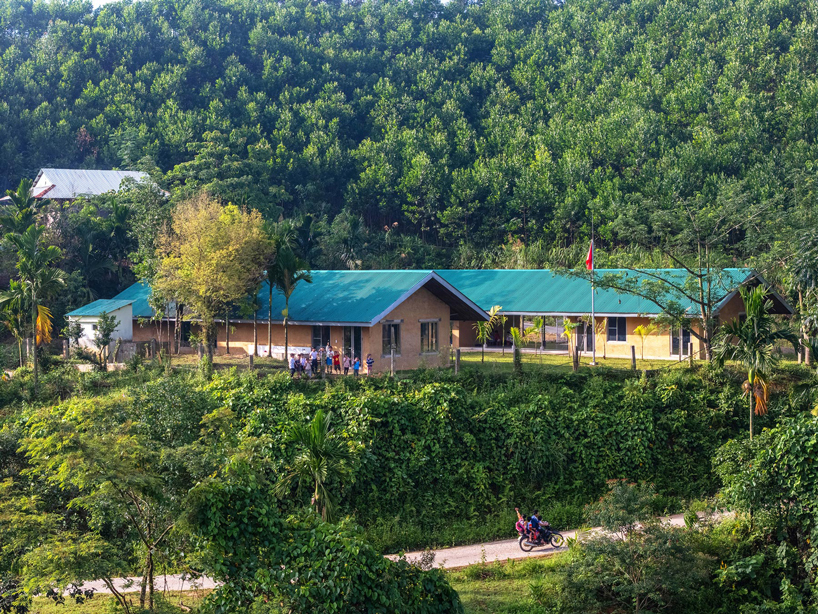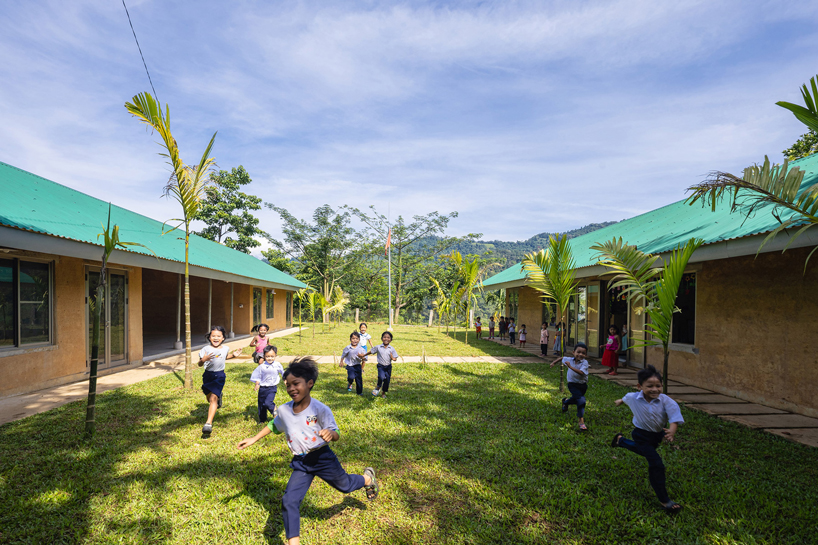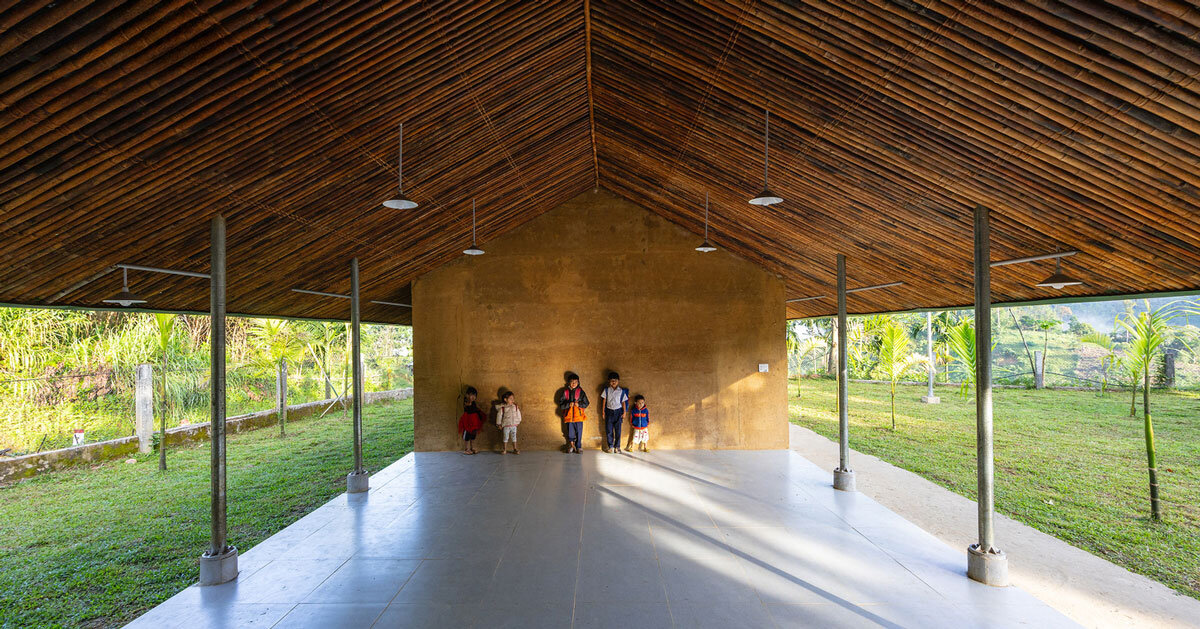School by VTN Architects Opens in Vietnam’s Mountain Region
Vo Trong Nghia Architects – VTN has completed Nuoc Ui School in Tra Mai commune, Nam Tra My district, a remote mountainous region in Central Vietnam. The project provides an educational facility for an ethnic minority community living across steep terrain and a climate characterized by frequent storms and heavy rainfall. Funded primarily by the Midas Foundation, with windows and doors sponsored by Tostem, the school is conceived as a durable and locally adapted structure. The design prioritizes the preservation of the existing landscape and establishes a clear relationship between the built environment and the surrounding forested mountains. Classrooms and supporting buildings are arranged to open toward these natural views, while a central courtyard is oriented to overlook the valley. The architectural layout emphasizes openness, natural light, and environmental responsiveness.
Built from rammed earth and bamboo, the project embraces local materials and the surrounding forested landscape, opening its classrooms toward sweeping valley views. Simple yet robust, the architecture forms a sheltered courtyard and a semi-indoor playground that support learning in all seasons. With passive ventilation, deep eaves, and a layout shaped by nature, the school stands as a quiet but powerful response to place, a modest structure with an enduring spirit.

all images by Trieu Chien
Nuoc Ui School Establishes Nature-Connected Educational Space
Architectural practice Vo Trong Nghia Architects – VTN positions locally sourced materials at the foundation of the school project. Rammed earth walls and bamboo roofing reduce transportation demands and environmental impact while maintaining a direct connection to regional building traditions. These materials also support the structural requirements of the sloped site and provide resilience against heavy rainfall. Deep roof eaves are incorporated to protect the earthen walls and extend the building’s lifespan. The school is organized around an internal courtyard, with classrooms connected to a forecourt through a semi-indoor playground. This arrangement forms a continuous sequence of spaces for learning, play, and group activities. The semi-indoor playground, located between two classrooms, offers a sheltered play area that remains usable during rainy periods.
Large, symmetrically placed windows provide natural ventilation and daylighting, reducing reliance on mechanical systems. Combined with buffer zones such as covered corridors and deep eaves, the ventilation strategy helps maintain a stable indoor environment suited to the region’s humid tropical climate. These transitional spaces also function as areas for informal activities and interaction. Nuoc Ui School presents an architectural approach grounded in local materials, climatic conditions, and community needs. Its modest scale and clear structural system support long-term durability, while its arrangement of interconnected indoor and outdoor spaces establishes a learning environment closely aligned with its natural context.

Nuoc Ui School sits within a remote mountainous region of Central Vietnam

the school is designed to withstand frequent storms and heavy rainfall

classrooms open toward surrounding forested mountains

